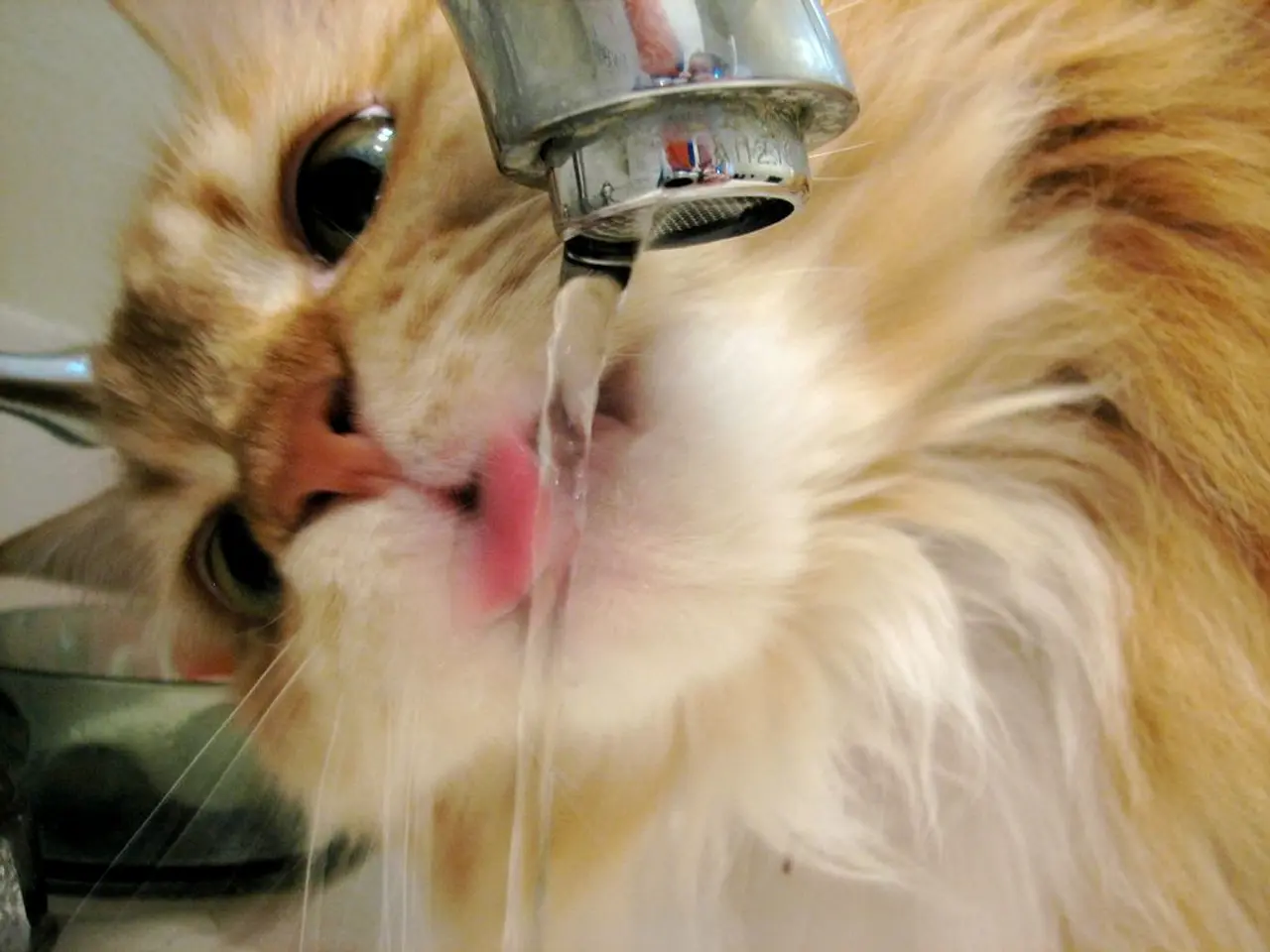Polluted Lich Water Supply Causes Health Concerns - Consumption of water in the city of Lich
In a recent announcement, the city utilities of Lich and the health department of the Giessen district revealed that the drinking water in parts of Lich and its surrounding areas, including Birklar, Muschenheim, Kloster Arnsburg, Bettenhausen, and Langsdorf, is microbiologically contaminated. The contamination has been traced to the presence of E. coli bacteria.
E. coli, a type of bacteria commonly found in the intestines of animals and humans, can cause urinary tract infections, peritonitis, and, in rare cases, heart valve infections. To ensure safety, it is crucial to take precautions when using the affected water.
The city authorities have initiated a chlorine disinfection of the water supply network, but the duration of the contamination remains uncertain. As a temporary measure, residents are advised to boil tap water for over ten minutes before consumption, cooking, and cleaning open wounds. This includes using boiled water for brushing teeth.
It is essential to note that the source of the contamination is currently unknown, and no specific information is available about the expected persistence of the contamination in the drinking water supply. The persistence depends on several factors, such as the source of contamination, hydrodynamics of the water system, presence of residual disinfectants, water temperature, and biofilm formation in pipes.
While the city authorities have taken steps to address the contamination, no further measures or updates have been reported. For precise estimates and updates on the contamination duration, residents are encouraged to consult local water quality reports or health authority announcements.
Residents are advised to stay vigilant and follow the instructions provided by the authorities to ensure their safety. Regular updates will be shared as more information becomes available.
The community is urged to stay vigilant and prioritize health during this time, as the contaminated water might lead to various health issues like urinary tract infections, peritonitis, and even heart valve infections. To support health-and-wellness, residents should consider practicing good nutrition by incorporating foods rich in probiotics and boosting their immune system.
In the wake of this uncertainty, it's vital to lean on science to guide us in understanding the factors affecting the persistence of the contamination, such as source, hydrodynamics, residual disinfectants, water temperature, and biofilm formation. Residents should look to local health authorities for accurate and timely updates on the contaminated water situation, following their instructions to ensure safety and wellbeing.




